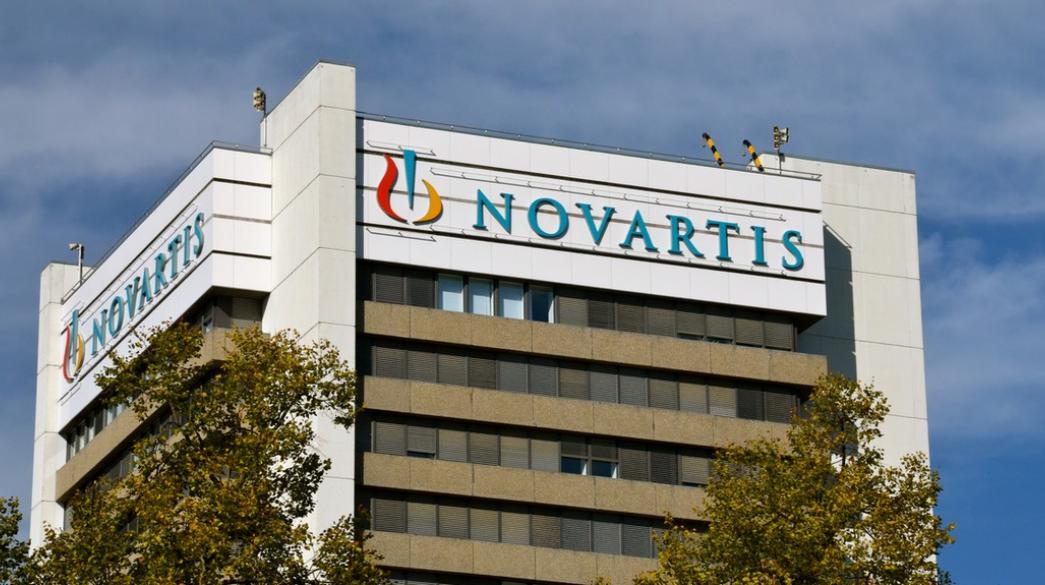A large ploy by the Swiss pharmaceutical company Novartis, from which the group made more than $70 million in profits just over three years involving unfair practices on prescription procedures by doctors, individuals and employees of the National Health System, was outlined in records published by US authorities yesterday.
These investigations by the US authorities, namely the Securities and Exchange Commission (SEC) and the Ministry of Justice (DoJ), led to the case being wound up without further criminal consequences or imposition of administrative sanctions on Novartis, after the company agreed to pay particularly high fines, much higher than the benefit it had from the illegal and unfair practices: $111.8 million to the SEC and $ 233.9 million to the DoJ, or a total of $ 346.7 million.
The estimated benefit in Greece is at $70.1 million in Greece, and only $13.8 million in South Korea and $8.4 million in Vietnam. That is, the sums paid to the US authorities were almost four times the economic benefits.
There are three main conclusions of Greek interest from the order issued by the SEC, which ends any further prosecution of Novartis:
1. The findings of the investigation lack any reference to any involvement by politicians. In addition to executives and employees of the company in Greece, doctors involved in the public and private sectors appear to be involved, who with the appropriate gifts prescribed Novartis products.
2. Although the US document does not reveal a political scandal, it is nevertheless a very serious case of squandering public health resources and circumventing rules of competition in the field of medicine, which raises key questions: to what extent do similar problems exist in the health sector and what are the costs of such practices for the public health system and private spending?
3. The extremely paradoxical conclusion from the US documents published is that Novartis pays a high price to the American authorities for the unfair practices it applied in Greece, based on US law on corruption abroad (Foreign Corruption Practices Act), but In Greece authorities have not been able to move ahead with the case. In some cases of a similar nature that have reached the court in Greece, doctors and Novartis executives have been acquitted. So far, in Greece, investigations have been highly politicized, with no substantial results other than creating a public impression, without any investigation having been completed.
According to a brief description of the results of the US investigations, from about 2012 to 2015, the Greek subsidiary of Novartis participated in a plan to provide benefits to health care providers, ie to doctors, including government hospital staff, to gain an unfair advantage and increase sales of its drug Lucentis.
Additionally, in the period 2009-2012, Novartis Greece conducted some Phase IV studies (safety studies and drug side effects), as well as epidemiological studies that were aimed at promoting the sales of Novartis products in Greece and ended up in unfair payments being made.
That is, the company used the studies as a pretext to justify doctor's payments, which were in fact an exchange for a directed prescription.
The abuse of seemingly legitimate educational and scientific activities for unjustified purposes included the department of ophthalmology of Greece’s Novartis, and was known and approved by the directors of various levels, including those who provided guidance to lower-level personnel on "investment" activities. Novartis Greece incorrectly recorded payments related to these activities as legal expenses for advertising and promotion or marketing and sales.
Investing in doctors
Some employees of the ophthalmology department of the Greek Novartis had classified doctors based on their prescription preferences and provided them with compensation based on the possibility of prescribing Novartis products. These were the "investments" to increase the use of Novartis products. In fact, within the company, the return on investment (ROI) was calculated as a combination between illegal payments and their results at the prescription level.
Sales and marketing staff were encouraged to plan their activities to maximize investment performance. Low-performing doctors received lower payments or stopped being paid.
The ophthalmology department of Novartis Greece abusively used the sponsorships of international conferences for the participation of doctors, in order to motivate them to prescribe Lucentis. Expenses per doctor have in some cases exceeded $ 5,000. International conferences, even in the United States, were used to undermine a competing company.
An internal Novartis document called on sales representatives to make it clear to doctors that "Lucentis is facing serious market difficulties and that there will be serious consequences," meaning that the gifts will stop. Similar practices were followed by Novartis Greece in Phase IV and epidemiological studies. In some cases, the selection of doctors to participate in paid studies was chosen by sales staff, so that these fees were linked to the promotion of prescribing specific products.
The above problems have been identified by the internal audit of Novartis since 2012 and the management of the company has agreed to participate in a rehabilitation plan and improve the supervision of clinical trials by its Financial Services Directorate.







